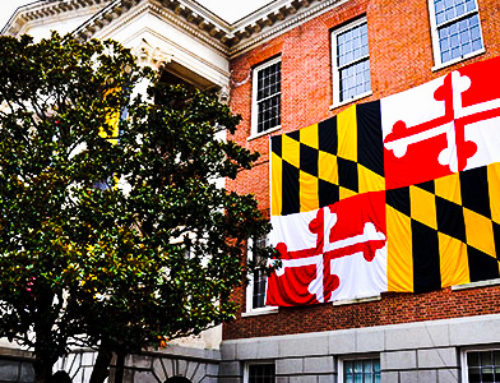View by Topic
Recent Articles
-
EPA Designates PFOA and PFOS as Hazardous Substances under Superfund LawSaturday, April 20th, 2024
-
Federal Government Finalizes New Efficiency Standards for LightbulbsSaturday, April 13th, 2024
-
2024 IECC is Final After Addressing Preemption IssuesSaturday, April 6th, 2024
-
Settlement Portends Broad Failure in Attempts to Ban Natural GasSaturday, March 30th, 2024
-
SEC Climate Disclosure Rule Stay and Venue Now in the 8th CircuitSaturday, March 23rd, 2024
View by Month/Year
“Green Building Law Update” Headlines
Recent Articles & News from
Stuart Kaplow’s blog
at GreenBuildingLawUpdate.com
- EPA Takes Action: PFOA and PFOS Now Hazardous Substances Under Superfund Law April 21, 2024
- Shedding Light on the Future: The Evolution of Lightbulbs in the Wake of New Energy Efficiency Standards April 14, 2024
- 2024 International Energy Conservation Code is Final After Addressing Preemption April 7, 2024
- Settlement Portends Broad Failure in Attempts to Ban Natural Gas March 31, 2024
Subscribe to the Green Building Law Update!
Stuart Kaplow brings his expertise and extensive experience to the table with his unique digital publication, "Green Building Law Update". Subscribers receive regular updates to keep them informed about important issues surrounding Environmental Law, Green Building & Real Estate Law, as well as the emerging demand for Environmental Social Governance (ESG).
Get fresh content through the lense of Stuart Kaplow's cutting-edge expertise, innovative commentary and insider perspective. Don't miss another issue! Subscribe below.
Court Rules that a Burrito is Not a Sandwich
A Massachusetts court settled a ‘food fight’ between Panera Bread Co. and Qdoba Mexican Grill determining that a burrito is not a sandwich.
This dispute arose from a 2001 lease, between Panera Bread Co. and the owners of the White City Shopping Center in Shrewsbury, Massachusetts, that restricted the shopping center from renting to another tenant that sold sandwiches.
In August of this year, the shopping center owners signed a 2,100 square feet lease with Qdoba Mexican Grill and Panera complained that the Mexican chain’s burritos violate its sandwich exclusivity clause. The landlord sought a declaratory judgment from the court that the new Qdoba lease would not violate the existing Panera lease, arguing that ‘burritos, tacos, and quesadillas’ were not sandwiches. The Panera franchisee filed a counter claim seeking to enforce the lease exclusive.
Food experts for Qdoba were consistent in their testimony that a burrito is just a burrito. One of those experts, Chris Schlesinger, the owner of a restaurant in nearby Cambridge that sells sandwiches, described a sandwich as having “European roots” and generally recognized as “two pieces of leavened bread,” while a burrito is “specific to Mexico” and typically contains hot ingredients rolled into a flat unleavened tortilla. And Judith A. Quick, who previously worked as a deputy director of the Standards and Labeling Division at the US Department of Agriculture, said in her affidavit, “the USDA views a sandwich as a separate and distinct food product from a burrito or taco.”
Panera, in affidavits, argued for a more expansive definition of sandwich (which had not been expressly defined in the lease), saying a flour tortilla qualifies as bread, and that a food product with bread and a filling is a sandwich.
In his ruling, Worcester Superior Court Judge Jeffrey A. Locke cited Webster’s Third New International Dictionary definition of a sandwich and explained that the difference comes down to two slices of bread versus one tortilla, “A sandwich is not commonly understood to include burritos, tacos, and quesadillas, which are typically made with a single tortilla and stuffed with a choice filling of meat, rice, and beans.”
In his eight-page decision released last week, Judge Locke ruled that burritos and tacos were not expressly provided for in the exclusivity clause of the lease and that the term sandwich was not broad enough to have been violated by the sale of burritos. Panera has 30 days to file an appeal.









